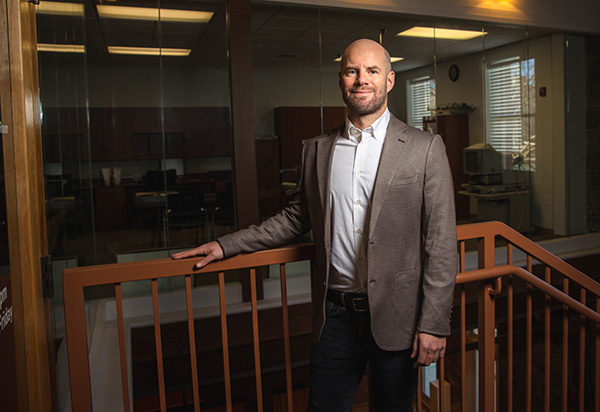Wells appointed to Florida State Historical Marker Council
October 14, 2022 | CASSH Communications, UWF | casshcommunications@uwf.edu

Dr. Jamin Wells, University of West Florida associate professor and director of UWF’s Public History Master’s Program, was recently appointed to the Florida State Historical Marker Council. The Florida Department of State selected Wells based on his accomplishments in the field of Public History.
Of his selection, Wells says, “I am honored to have the opportunity to serve on this council and broaden our understanding of Florida's rich history.”
“I am honored to have the opportunity to serve on this council and broaden our understanding of Florida's rich history," said Wells.
The Florida Historical Marker Program is one of the Division of Historical Resources' works to raise public awareness of Florida’s rich history. The markers convey the heritage of the places and people who established and developed Florida. Across the state, the markers are placed in historical venues such as churches, schools, archaeological sites, battlefields and homes.
The council, created by the Florida Legislature in 1994, has approved all state historical markers throughout the state of Florida that have been erected since that date, including many markers in our area.
The three-person Florida Historical Marker Council is responsible for reviewing and approving applications for new historical markers throughout the state. Wells’ two-year term involves quarterly meetings to review and approve new historical markers proposed by a wide variety of community organizations, historical associations, individuals and more.
Wells says he has had the good fortune to work with a broad range of community groups and organizations on public history projects across the Florida Panhandle. Some of these notable projects have included collaborative projects with the UWF Historic Trust, the Gulf Coast Digital History Project and additional partnerships with other local non-profits and historical groups.
The Gulf Coast Digital History Project, one noteworthy project, is an interdisciplinary effort that involves several professions, academic fields, and institutes. It seeks to strengthen research, teaching, and learning by creating an accessible network of Gulf maritime history and heritage resources.
Wells says that, ultimately, his goal is to contribute to continuing the Florida State Historical Marker Council’s high standards for historical research and interpretive text.
For more information about the UWF Department of History and Philosophy or related programs of study, visit uwf.edu/history.






